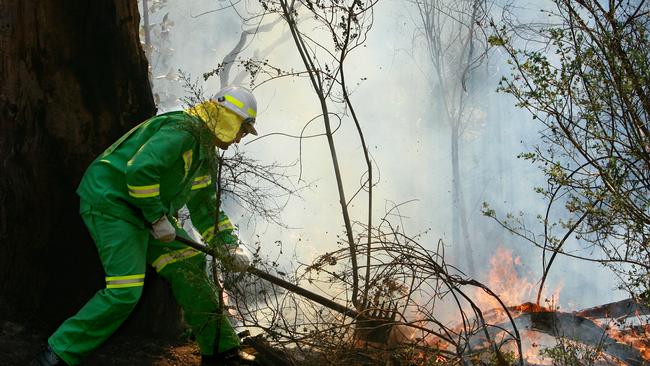Private landholders to fund crown land fire management
Victorians will pay an emergency services tax on their private properties to fund crown land fire management.

The Allan Government is about to hit private landholders with higher property taxes to pay for state forest fire and fuel load management, under its new Emergency Services and Volunteer Fund legislation.
From July 1 the government expects to collect $1.65 billion in 2025-26 ESVF taxes and $1.8bn in 2026-27, compared to the $1bn it collected this financial year under the Fire Services Property Levy that it is due to replace.
The Allan Government will use most of the extra tax revenue to fund up to 95 per cent of its departmental and agency costs, which had already reached $898m in 2023-24.
Victorian Opposition deputy leader Danny O’Brien said up until now the $900m in departmental and agency costs had been funded out of consolidated revenue drawn from other taxes.
“Labor is now trying to slug all Victorians again,” Mr O’Brien said.
“There is no justification for this other than Labor’s inability to manage money and desperate need for more revenue.”
The government recently supplied the Opposition with a breakdown of these costs, which showed in 2023-24:
– $431.5m funded the Department of Energy Environment and Climate Action’s crown land fire and emergency management divisions, with that cost likely to have already blown out to more than $500m this financial year, after DEECA took on the Parks Victoria firefighting staff and contracted 17 former timber industry harvest and haulage crews to undertake forest fire management work.
– $327m funded Triple Zero
– $20.9m funded Emergency Management Victoria
– $15.5m funded the State Control Centre
– $41.1m to run Emergency Recovery Victoria
– $27.45m for the Emergency Alert Program
– $35.1m for the Emergency Management Operational Communication Program.
Treasurer Jaclyn Symes has already conceded the CFA, VicSES and other emergency services volunteer groups will receive just $50m a year of the extra tax the ESVF generates.
The Opposition has proposed amending the ESVF Bill to ensure it can only be used to fund the CFA, VicSES and Fire Rescue Victoria, as well as requiring the government to table a report in parliament each year that details ESVF funding allocations.
Mr O’Brien said “removing these new (departmental and government agency) recipients from the levy would mean we could dramatically reduce the cost impost on all Victorians property owners, including farmers who are facing an outrageous 189 per cent increase.”
But it seems unlikely the government will back down, despite the Upper House deferring debate on the ESVF Bill until the next Parliamentary sitting week that starts on May 13, after the May 3 federal election.
During the debate Labor MPs repeatedly defended the EVF tax hike, with Ryan Batchelor stating “the core driver of this reform, is to make sure that our emergency services and their volunteers have the resources that they need to look after our state, to look after the people of our state and to look after our fellow Victorians and keep them safe in times of natural disaster”.




